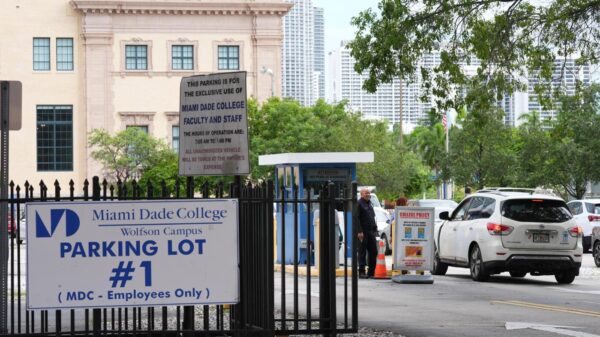Concerns over the safety of large-scale battery storage systems are prompting significant local opposition across the United States. As lithium-ion battery arrays become increasingly connected to electrical grids for energy storage, residents are voicing fears of potential fires, particularly in light of a significant incident at a facility in California earlier this year.
In July, the village of Island Park, New York, enacted a moratorium on new energy storage projects. Mayor Michael McGinty expressed the community’s concerns, stating, “We’re not guinea pigs for anybody… we are not going to experiment, we’re not going to take risk.” This sentiment reflects a growing trend, with dozens of localities across the U.S. temporarily blocking the development of battery energy storage systems.
The fear of thermal runaway—a situation where batteries overheat uncontrollably, potentially resulting in fires or explosions—has become a focal point for opposition. Proponents of battery energy storage systems, known as BESS, argue that they are essential for managing the increasing demand for electricity, especially as intermittent energy sources like wind and solar gain prominence. BESS can store cheap power during low-demand periods and release it during peak usage times, making the grid more reliable and reducing the risk of blackouts.
Despite the advantages, the controversy surrounding safety has intensified. A fire at a battery storage facility in Moss Landing, California, in January 2025 sent toxic smoke into the air and necessitated the evacuation of approximately 1,500 residents. Such incidents raise alarm among communities considering similar projects.
In a significant development, Lee Zeldin, the Administrator of the Environmental Protection Agency, visited New York in August to criticize the state for hastily approving energy storage sites to meet what he termed “delusional” green energy goals. State officials have denied these claims, emphasizing that safety remains paramount.
California and Texas are currently leading the U.S. in battery storage capacity, but other states are rapidly developing their own projects. According to a report from the American Clean Power Association, developers added 4,908 megawatts of battery storage capacity in the second quarter of 2025, with Arizona, California, and Texas accounting for around three-quarters of this new capacity. This increase is equivalent to powering nearly 1.7 million households.
New York aims to add 6,000 megawatts of energy storage by 2030, with half of that coming from large-scale systems. Despite this ambitious target, local opposition remains strong, particularly around proposed sites near residential areas. For example, residents in the Town of Ulster have expressed concerns over a proposed 250-megawatt lithium-ion storage system, fearing its proximity to schools and homes. Local resident Winnie Sokolowski stated, “They’re banking on nothing happening, but I don’t think you can place it where they’re proposing and assume nothing’s going to happen. It’s just too risky if it does.”
Developers like Terra-Gen argue that advances in safety technology have mitigated risks associated with battery storage. They point out that the Moss Landing facility’s indoor storage design would not be permissible under New York’s stringent fire codes, which mandate specific safety measures to prevent fire spread.
Experts in the field, such as Ofodike Ezekoye, a combustion expert and professor at The University of Texas at Austin, acknowledge that while battery systems have become safer, no technology can be deemed entirely foolproof. “This is a relatively immature technology that is maturing quickly,” Ezekoye noted, highlighting ongoing efforts to enhance safety protocols.
As localities like Maple Valley in Washington state impose temporary moratoriums to gather more information on battery storage safety, it is clear that the dialogue surrounding energy storage systems is evolving. Laura Philpot, the city manager of Maple Valley, remarked that the moratorium is a precautionary measure: “to protect us until we know more.”
The opposition to battery storage projects is not solely limited to safety concerns. It also reflects a broader apprehension about the pace of renewable energy transitions. In Halstead, Kansas, voters will soon decide whether to prohibit larger battery storage systems within city limits. Mayor Dennis Travis believes that the community could eventually support a well-designed storage facility but is cautious about rushing into decisions driven by fear.
The trend of localities enacting moratoriums on battery storage projects has been on the rise, particularly since 2023. A presentation by the Pacific Northwest National Laboratory last year indicated a notable concentration of this activity in New York, where community activism has gained significant traction.
New York State Energy Research and Development Authority President Doreen Harris remains optimistic about the future of battery storage. She asserts that the state has implemented appropriate safety regulations and believes that increasing the use of battery systems will “strengthen and modernize our grid.” Harris recalls that early concerns regarding solar farms eventually gave way to recognition of their benefits.
As discussions continue, it remains evident that the balance between embracing renewable energy technology and addressing community concerns will be a crucial factor in the future of battery storage projects across the United States.





































































